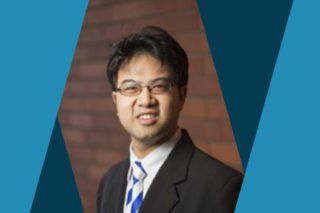How to Find and Land A Hidden Job: Benny Kuo’s Story

Share
Finding the hidden jobs that make up a large portion of the job market can seem daunting. If job openings don’t get posted, how are you supposed to find them? Benny Kuo demonstrated how it’s done in his transition from college to the workforce. He used the resources around him to reach out and find new opportunities. Find out how he got his dream job from the hidden job market.
What do you do for a career? Who do you work for?
I work in the high tech sector as a product marketing manager for CRU, Inc.
I develop strategies for our business to grow and define the customer segments, research companies & markets, coordinate tradeshow events, and formulate strategies for product offerings to grow or create markets.
How long did it take you to find this job?
I started my job hunt about six months before graduation. My interview process with CRU took about two weeks, and I started at CRU a month after graduation.
How did you find your job? What resources did you use? What tool or tactic helped the most?
This was a hidden job! CRU connected with my school’s career center for a different position in the same department. I asked the professor that helped advertise this job if he could connect us. I sent in a cover letter and resume speaking to my experiences for that particular job and also what my latest work experiences exposed me to. This led to a discussion about expanding the position to fill other needs too.
Overall, I used Mac’s List, the OSU and Willamette University career boards through HandShake, and my contacts.
What was the most difficult part of your job search? How did you overcome this challenge?
The most difficult part of the search was feeling productive and staying engaged. Finding the balance between taking a breather and productively searching for a job was a challenge.
I overcame this by breaking the job search into segments and celebrating small wins, like meeting with the CEO of a company or learning more about a company I didn’t know much about.
What is the single best piece of advice you would offer other job seekers?
Seek out recruiters and stay connected with your network. I worked with two recruiters a few months before graduation to understand the job market in Portland and identify what my skills were worth. It was also helpful to hear what skills trends and hot markets they had seen the prior few months, so I could start working on any skills gaps for the specific market I was entering.
Why do you love your job?
I love the growth opportunities at CRU. I’m already engaged in several projects and utilizing what I learned in business school. In my second month, I had already presented an analysis at an all-hands meeting including the board of directors.
Want to learn more about Benny? Connect with him on LinkedIn!